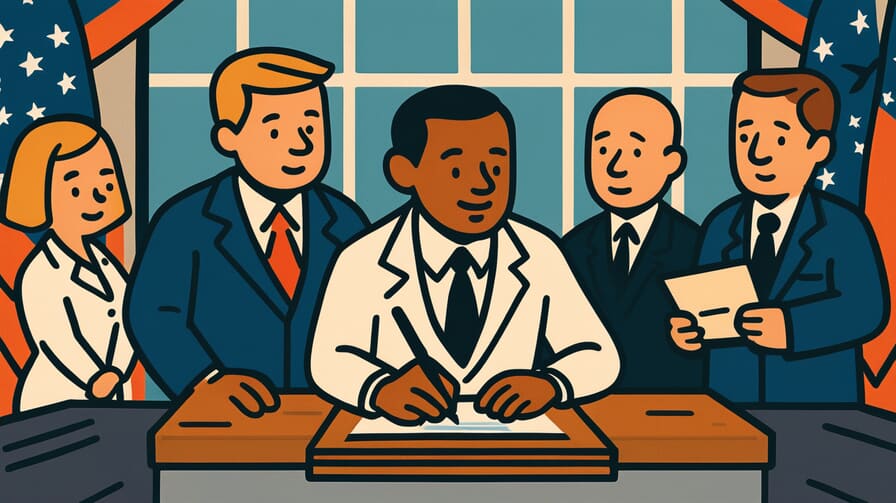[Disclaimer] This article is reconstructed based on information from external sources. Please verify the original source before referring to this content.
News Summary
The following content was published online. A translated summary is presented below. See the source for details.
President Donald J. Trump has officially proclaimed August 31 through September 6, 2025, as Overdose Prevention Week, continuing the annual tradition of focusing national attention on the ongoing opioid crisis. This proclamation comes amid encouraging trends, with recent data showing the first annual decline in opioid overdose deaths since 2018. The President acknowledged the progress made while emphasizing the need for continued efforts to combat drug addiction. The proclamation highlights expanded access to naloxone, enhanced education and awareness programs, and support for recovery and treatment services. Despite proposed budget cuts to some federal grants for naloxone distribution, the administration reaffirms its commitment to addressing the opioid epidemic. The President calls for community involvement and support, urging all Americans to participate in prevention efforts during this critical week of awareness and action.
Source: White House News
Our Commentary
Background and Context

The opioid crisis has been a persistent public health emergency in the United States for over two decades. The annual observance of Overdose Prevention Week serves as a crucial platform for raising awareness, promoting prevention strategies, and rallying support for those affected by drug addiction. President Trump’s proclamation in his second term (2025-2029) comes at a time when the nation is seeing some positive shifts in overdose statistics, but the epidemic remains a significant challenge.
Expert Analysis
The 2025 proclamation reflects a cautiously optimistic tone, acknowledging recent declines in opioid-related deaths while emphasizing the need for continued vigilance. The administration’s focus on expanding access to naloxone aligns with ongoing public health recommendations, despite potential challenges posed by proposed budget cuts to certain federal grants.
Key points:
- Continuation of Overdose Prevention Week as an annual event demonstrates sustained federal commitment to addressing the opioid crisis
- Recent declines in opioid overdose deaths suggest that some prevention and treatment strategies may be having a positive impact
- Proposed budget cuts to naloxone distribution programs could potentially hinder progress if enacted
Additional Data and Fact Reinforcement
Recent statistics and policy developments provide context for the 2025 proclamation:
- Approximately 105,000 drug overdose deaths occurred in the U.S. in 2023, with nearly 80,000 involving opioids
- A 4% decrease in opioid overdose deaths was observed from 2022 to 2023, marking the first annual decline since 2018
- Provisional 2024 data predict a significant 27% one-year drop in overdose deaths
Related News
The “Halting the Epidemic of Addiction and Loss Act of 2025” was introduced to expand the scope of supported opioid overdose reversal agents beyond naloxone. This legislative effort complements the administration’s focus on prevention and treatment strategies.
Summary

President Trump’s proclamation of Overdose Prevention Week 2025 comes at a pivotal moment in the ongoing battle against the opioid epidemic. While recent data show encouraging trends, the crisis remains a significant public health challenge requiring sustained attention and resources. The effectiveness of future prevention efforts may hinge on the balance between proposed budget adjustments and the maintenance of critical support services.







